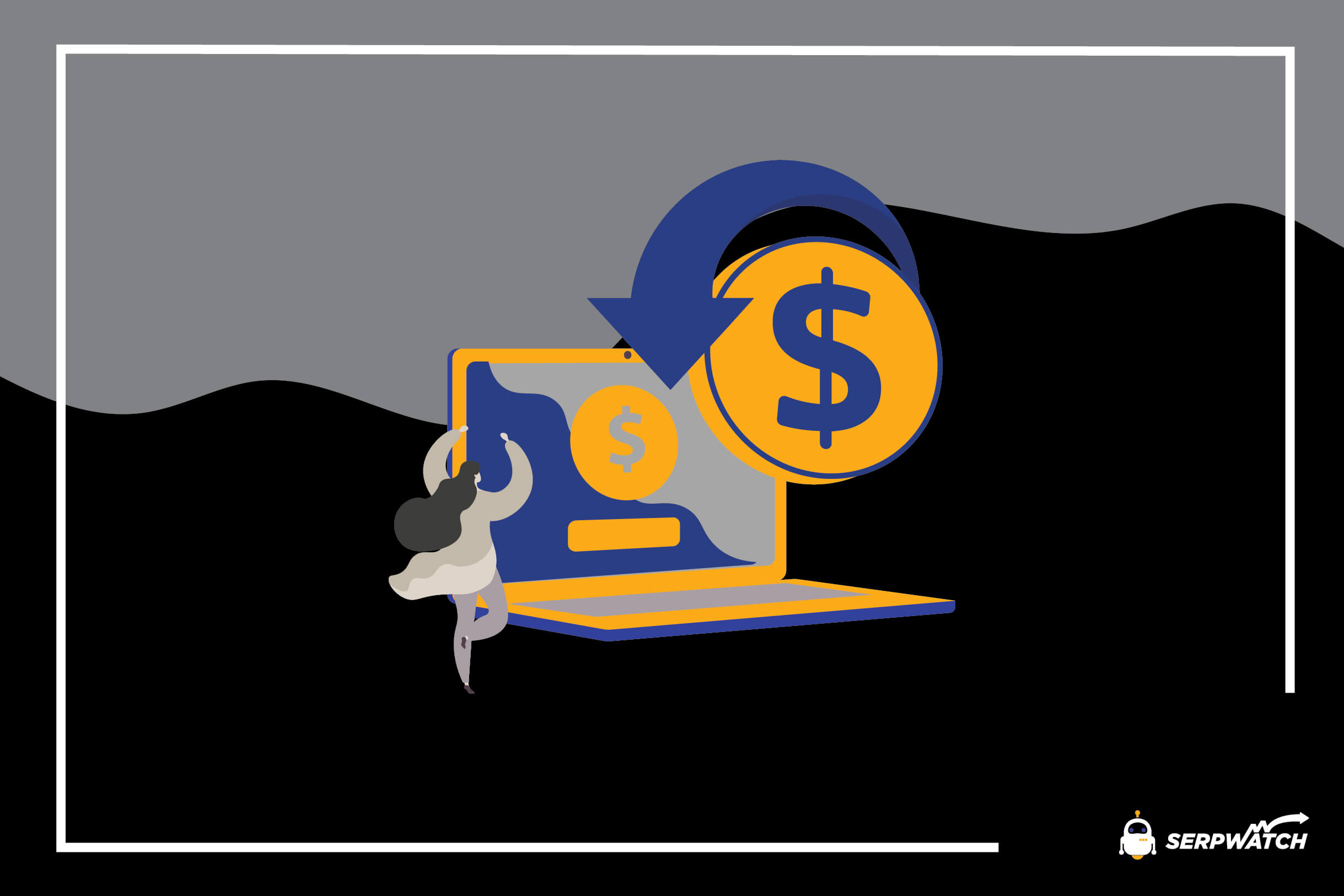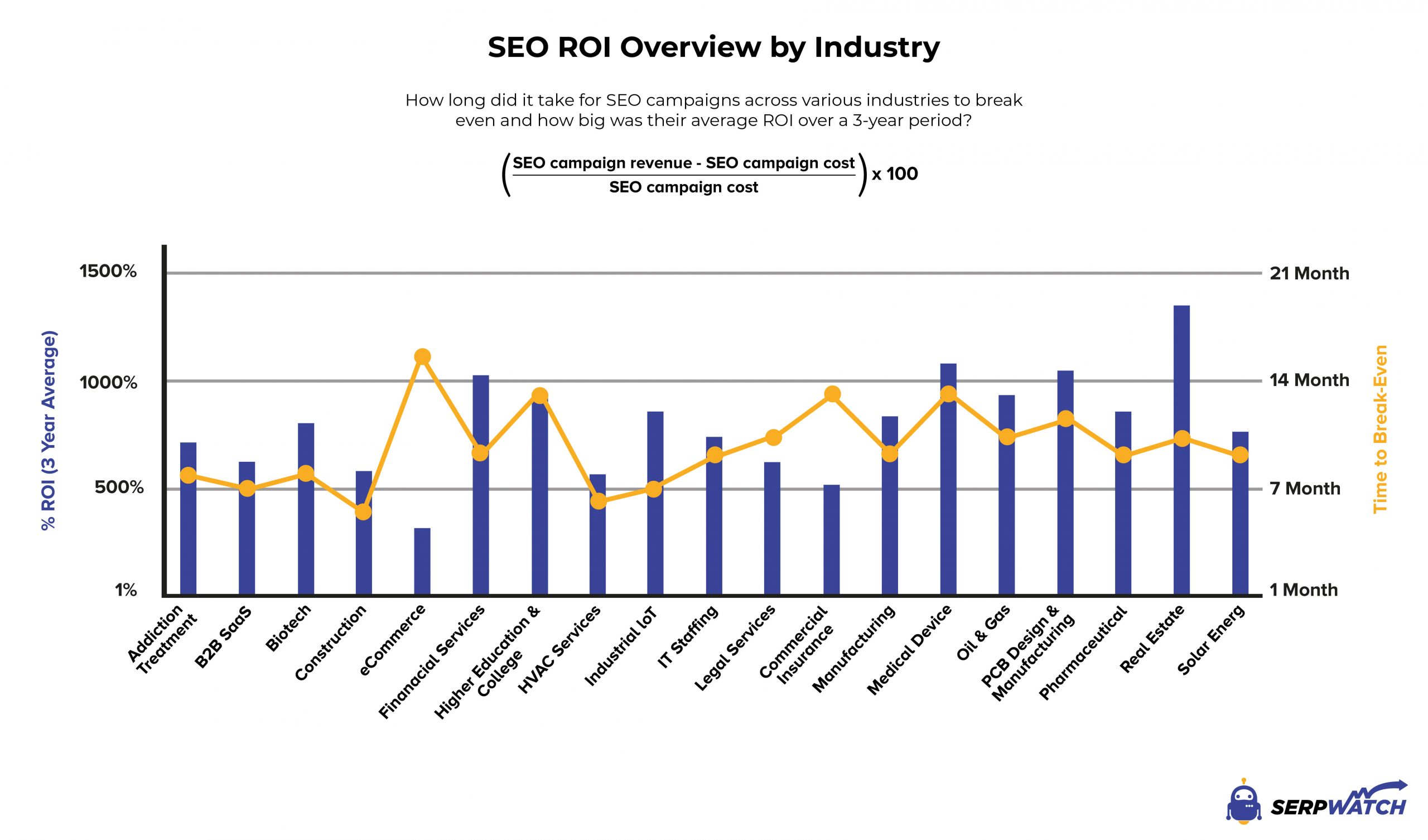
How to Determine and Calculate ROI on SEO in 2024?

Search engine optimization requires patience. However, most business owners want tangible results fast without realizing that SEO is a marathon and not a sprint.
Even so, SEO agencies and marketers need to provide periodic reports and measure the success of their digital marketing efforts. Therefore, learning how to track SEO ROI is a much-needed skill. Here’s how to do it.
Find in this article:
- What does search engine optimization ROI mean?
- How significant is search engine optimization ROI?
- How to calculate the effects of your SEO campaign?
- What is the formula for calculating ROI on SEO?
- Is your SEO strategy productive?
- How long does it take to see SEO results?
- What industries need SEO the most?
- Can SEO campaigns boost sales?
How to Measure ROI on SEO
The art of SEO is easy to learn but hard to master primarily because major search engines often change the rules of the game. Nevertheless, SEO statistics reveal that most marketers still prefer SEO to PPC, arguing that organic ranking is more beneficial.
Likewise, measuring the effectiveness of SEO strategies can be easier said than done. With so many elements to consider, marketers can have problems learning how to measure ROI on SEO and report to their clients.
But, of course, everything is possible with the right tools. For example, a well-built rank tracker can help you track keyword performance, while services like Google Analytics can provide insights into goal completions. By monitoring SERP rankings and organic traffic, SEO specialists will have enough data to put things into perspective and demonstrate the value of their SEO efforts.
What Does SEO ROI Stand For?
Before we go into the process of measuring ROI, we should first explain what the abbreviation means. If you are not familiar with the term, ROI stands for return on investment. As the name suggests, ROI is a metric showcasing the returns on money invested.
Originally an economics term, ROI is nowadays present in almost every industry, including the SEO community. Of course, a positive SEO return on investment is on everyone’s wish list because it means that gains are higher than the costs.
In essence, search engine optimization ROI reflects the efficiency of SEO campaigns and strategies. For that reason, SEO specialists and marketers use it as a reference point for the work they put in, trying to see an uptick in ranking and increase revenue.
Why Is ROI Analysis Necessary for Agencies and Marketers?
In any line of business, the profitability of investments is crucial for staying afloat. After all, any company with a low ROI will inevitably go bankrupt because the costs exceed profits. It all comes down to simple maths.
Likewise, SEO agencies and marketers must provide “proof” of their work, which is essentially another name for SEO ROI. Periodic reporting is valuable because it can show the efficiency of SEO strategies. Therefore, most agencies perform quarterly or yearly analyses.
Admittedly, ROI in the SEO world often acts as the lower limit estimate of likely results. However, in the long haul, the impact frequently exceeds expectations. Nonetheless, it’s essential to keep track of your performances, and here’s how to do that.
How to Measure ROI for Organic SEO
Search engine optimization is a multi-faceted process, and the same goes for measuring ROI for SEO strategies. In other words, it’s necessary to consider various elements to get an accurate returns-investments ratio.
First, markets should record the initial parameters when starting a project to compare the data with future results. Then, when the time comes to measure ROI, SEO specialists can use an SEO ROI calculator or analyze metrics manually.
For instance, many use Google Analytics for reporting. Primarily, you can show progress on organic traffic together with conversion rates. In addition, ecommerce stores can track revenue by looking at online sales numbers, while other types of websites need to assign a monetary value to actions completed on the site.
What’s a Good SEO ROI?
Even when you determine the value of actions on the website, it could be tricky to tell if the ROI meets stakeholder’s expectations. After all, every business has specific goals, and every organization thinks of success differently.
Also, companies have different budgets, and their spending on digital marketing can affect SEO success. For example, if an SMB spends a thousand dollars on search engine optimization, it expects a different SEO return on investment than a massive enterprise that invests millions.
Then again, it’s not all about money. Depending on the type, businesses and even individuals can measure success in many ways, making it challenging to create a universal formula. However, SEO experts often use a classic mathematical system to assess the effectiveness of their SEO campaigns. So, let’s see how it works.
What’s the ROI Formula for SEO?
The steps for calculating returns on investments in digital marketing are the same as in most other industries. It all comes down to mathematical formulas. And even if math is not your forte, there’s no need to worry because it’s pretty straightforward to calculate ROI.
To be precise, you should subtract the cost of an investment from the investment revenue and divide the number by the investment cost. To make things easier to understand, here’s the basic ROI formula:

Even though the formula looks simple, the tricky part is determining the revenue, i.e., the results of SEO campaigns. Namely, marketers must assign value to actions completed on the site and then use leads or conversions as a factor in their calculations. In other words, expressing actions on the site through data is easier said than done.
Does Your Strategy Create SEO Value?
Arguably, SEO goals can be vague and with no numerical values. Even KPIs sometimes lack specific values, making it challenging to determine the revenue. For that reason, most marketers turn to Google Analytics or rank trackers for insights.
On top of that, Google Analytics will allow you to define goals and use conversion rates as value indicators. Or you could use rank trackers like SerpWatch to monitor ROI for specific keywords and other SEO elements. Needless to say, data accuracy is of the utmost importance for analysis and reporting.
So, these tools can provide tangible proof of the effectiveness of SEO techniques. However, if some methods don’t deliver expected results, the ROI of the entire campaign will drop. Thus, marketers must always stay alert and track performances regularly.
How Long It Takes to See Organic Revenue
As we mentioned earlier, SEO requires more time than paid advertising, with returns on investments coming months after the start of a campaign. On average, it takes three to six months for the first results to appear.
Even though the initial impact comes with a delayed effect, SEO benefits can last for years. Therefore, longevity is among the primary advantages of this process.
Namely, SEO ROI statistics show that organic traffic driven by carefully crafted SEO campaigns often comes months after launching the campaign. SEO agencies and marketers often struggle with explaining this element to business owners who typically lack patience and want to see immediate results.
That’s why specific metrics, such as keyword search volume, can show progress in an easy-to-understand manner. That’s why apps like SerpWatch are ideal for demonstrating results and the efficiency of SEO campaigns.
What Industries See the Highest ROI on SEO?
In the SEO industry, returns on investments depend on various factors. Keyword research might be the starting point, but the quality of content and technical aspects of a website will also affect ranking. Also, not every industry relies on digital marketing equally, and some markets are more open to the online world than others at the moment.
Namely, the average SEO ROI is the best for the real estate, health, and food industries. Likewise, financial services can provide massive returns on SEO investments. The same applies to the pet industry, together with several other markets.
But, of course, nothing guarantees success, and continuous evaluation of SEO efforts is a must. In other words, measuring ROI on search engine optimization will follow you across industries.

Does SEO Increase Sales?
In recent years, the importance of organic traffic has skyrocketed, and it shows no signs of stopping. As a result, businesses ranking high in SERPs reap massive rewards.
A successful SEO campaign will inevitably lead to increased sales, and that’s why business owners invest heavily in search engine optimization. Experienced SEO specialists know that Google Analytics can provide accurate insights into sales and conversions, and they use this free service without worrying about SEO pricing.
Ecommerce websites can effortlessly integrate various tracking tools to keep an eye on sales, but other online businesses can also benefit from SEO tools and apps.
Final Thoughts
If you want to maximize returns on digital marketing, measuring the effectiveness of SEO techniques is an essential step. Whether you are a business owner or a marketer, never ignore the importance of SEO ROI.
Calculating ROI can help structure your campaigns and direct future marketing efforts. That’s why measuring ROI, together with rank tracking, is almost a daily task for SEO specialists and digital marketers.






There are currently no comments.
Be the first!))